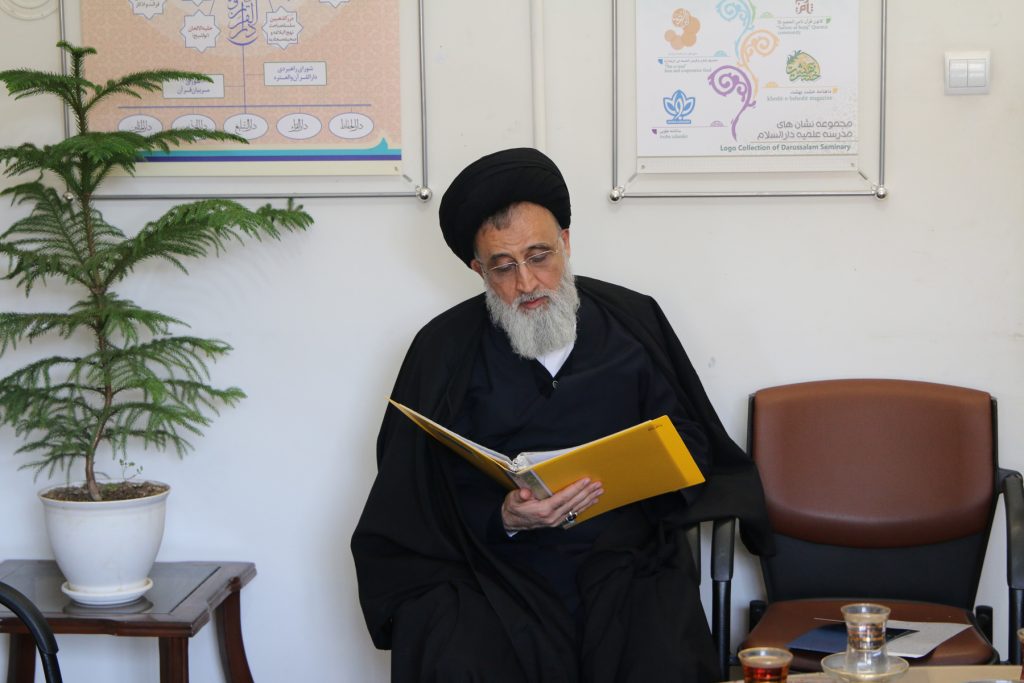Course Overview
Subject: kharij (post-doctorate/the highest level) course in jurisprudence: money creation
Professor: Ayatollah Seyyed Mohammad Reza Modarresi Tabatabai
Class time: Tuesday 9-10 am in person
Virtual course link: https://rubika.ir/qommpth
Venue: Qom, Safaieh, Alley 37, Fifth Sub, No. 172, Parto Saqalin Institute
Course Subject
An explanation of money creation:
Money creation means giving people the power of purchasing goods. The loans that are granted are in this direction; That is, we define credit and give it to people, and they turn that credit into the commodity they need. This is the traditional economic definition of money creation.
When it was approved that someone, for example, should borrow 50 million tomans, the bank also writes a number in his account. This is the technical meaning of money creation that is happening now. In fact, a credit is created and the recipient can use this credit.
The question is whether money creation by commercial and central banks is based on the production of real goods or not, and we have to prove whether it entails any corruption or not?
If we prove that money creation entails corruption, definitely it will be against the shari’a and it will be rejected. In other words, it is necessary to examine whether money creation is in the interest of society or not; nevertheless, the important point is that before examining this issue, we must consider whether the principle of money creation, in the sense currently used by banks, is acceptable to Shari’a or not?
This issue needs a jurisprudential discussion and we raise it against those who believe that money creation is only an economic issue and not a jurisprudential one!
Course Professor

Professor Ayatollah Seyed Mohammad Reza Modarresi Tabatabai:
Ayatollah Seyyed Mohammad Reza Modarresi Yazdi was born in 1334 A.H./1955 C.E. He is a Shiite mujtahid from Iran, one of the jurists of the Guardian Council and a member of the Expediency Council and the community of teachers of the seminary of Qom.
In jurisprudence and principles of jurisprudence, he benefited from religious authorities such as Hossein Vahid Khorasani, Mirza Javad Tabrizi, Mohammad Taqi Behjat, Mirza Hashem Amoli. He also benefited from Allamah Hassanzadeh Amoli in astronomy and mysticism and was one of the students of Ayatollah Morteza Motahhari and Ayatollah Abdullah Javadi Amoli in philosophy. He has been teaching kharij (post-doctorate/the highest level) courses in jurisprudence and its principles since 1372.
He has taught almost all the introductory and advanced courses of the seminary. Moreover, he has taught the courses of Islamic philosophy, theoretical mysticism, comparative philosophy, philosophy of ethics, economics (focusing on English texts) and ….
Works
- Some of his works:
- Shiism in Sunnim (translated into Arabic, English, Urdu, Indonesian, and Swahili);
- Introduction to the Tax System and Budget in Islam; Zakat and Khums in Islam;
- Production, Distribution and Consumption issues;
- Philosophy of Ethics;
- Fiqh Articles:
- In nine volumes (Some are written by him and in Arabic, which has been translated into Persian, and most of them are in the form of lectures);
- Dhikr[remembrance];
- the Hymn of Existence;
- The two Supreme Divine Commands (regarding the duty of enjoining the good and forbidding the evil);
- Prayer, a heavenly gift;
- The Peak of Mysticism (description of phrases from Sha’baniyah prayers
